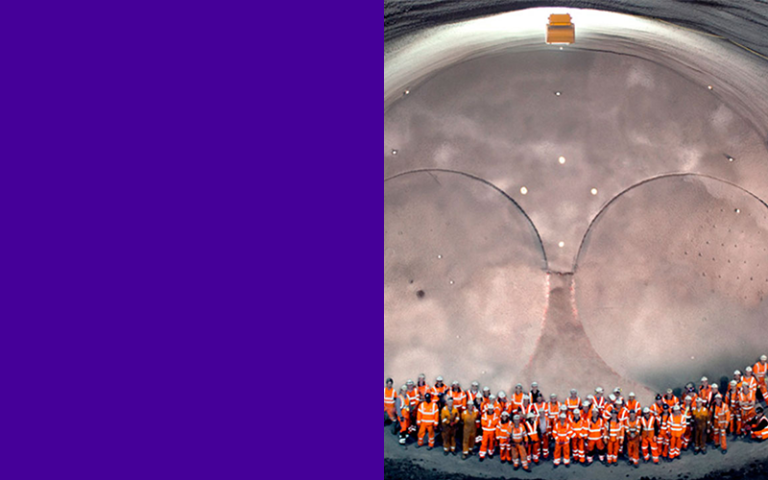UCL academic partnership helps to launch Elizabeth Line
The academic partnership that helped London's Elizabeth Line helped to develop a strategy for managing innovation in megaprojects.

22 March 2023
Before Heathrow Terminal 5, one thing that megaprojects (those worth over £1bn) all had in common was their tendency to disappoint. Fixed price contracting, which transferred the risk from client to contractors, assumed the latter could handle them, which generally they couldn’t. But clients stuck at the same model and time and again – the Channel Tunnel, the Scottish Parliament, the Jubilee Line extension – British megaprojects were delivered late and over budget.
Keen to set things straight, and influenced by the lean production manufacturing techniques that had transformed the Japanese car industry in the 1980s and 1990s, Sir John Egan, CEO of BAA – then owners and operators of London Heathrow – pursued a radical new approach with T5.
“Rather than transfer the risk to the contractor, the idea was to bear it through a process of collaboration overseen by an integrated project team,” explains Andrew Davies, Professor of the Management of Projects at The Bartlett School of Sustainable Construction.
This meant splitting the project into 16 component parts – air traffic control building, the terminal building and so forth – and a further 147 subgroups, and then building expertise in house. The role of the systems integrator would be vital – and tough: it would have to understand each component, from the railway systems and internal walkways to the roof and perimeter drainage.
With the work complete, Egan’s team and Andrew Wolstenholme, Programme Director of T5, approached Imperial College – where Davies was then working (the project bridged his move to The Bartlett in 2012) – to tell the story. Just as The Machine That Changed the World – the 1990 book that emerged from MIT’s pioneering study of industrial competition – popularised the story of lean production, the job was to bottle for distribution the radical approach pursued at T5. “We had to capture the story and tell the world about it,” says Davies.
Intellectual leadership
Wolstenholme saw an application for this magic sauce on his next job as CEO of Crossrail (as the Elizabeth Line project was called while under construction). Seeing what innovation had done for T5, he tasked the team with defining a process by which ideas from across the supply chain could be integrated, so as to bring the same performance benefits to his next megaproject. “He said to us: ‘we want your intellectual leadership: tell us how to do it’,” says Davies.
A four person-team – one from The Bartlett, one from Imperial College and two from Crossrail – was formed, and got to work on the literature. There was plenty on open innovation capture, support and funding, but it was all at the firm level. How could the approach be adapted to work inside a supply chain with a client and joint contractors?
“We couldn’t find a process that had been used anywhere in the world – we would have to devise one using the techniques gleaned from the company literature,” says Davies.
They settled on Innovate18, an innovation programme, co-funded by the client and the major contractors, which encouraged members of project teams to develop new ideas and share existing practices – to “pinch with pride” by lifting any ideas they could find that they thought might work. If they had seen something, they were encouraged to go and research it and pitch an entry to the forum. Among the fruits of this process were a new form of low-carbon concrete, a new safety glove and an innovative technique for spraying concrete.
There were plenty more innovations that came too late to implement and which have been collected on the Innovate18 digital platform. And the time delays experienced in the launch of the Elizabeth Line (finally opened to the public in May 2022) currently wrestling demonstrate that incorporating an innovation strategy will not by itself drag UK megaprojects from famine to feast.
The impact of the work is already spreading. Supported by Davies and his team, senior managers on the Elizabeth Line project have moved far and wide, taking the innovations with them to projects including the Thames Tideway Super Sewer, Hinkley Point C, HS2 and the Heathrow Expansion plan.
“Facilitated by our work, innovation is now being considered on these projects in a more transformative way, with the ideas targeted early in the process, ideally before the contractors arrive on site,” says Davies. The proof of the pudding – fewer time and budget overruns – will now be in the eating.
Contact
Prof Andrew Davies
Honorary Professor, The Bartlett School of Sustainable Construction
Email: a.c.davies@ucl.ac.uk
 Close
Close

